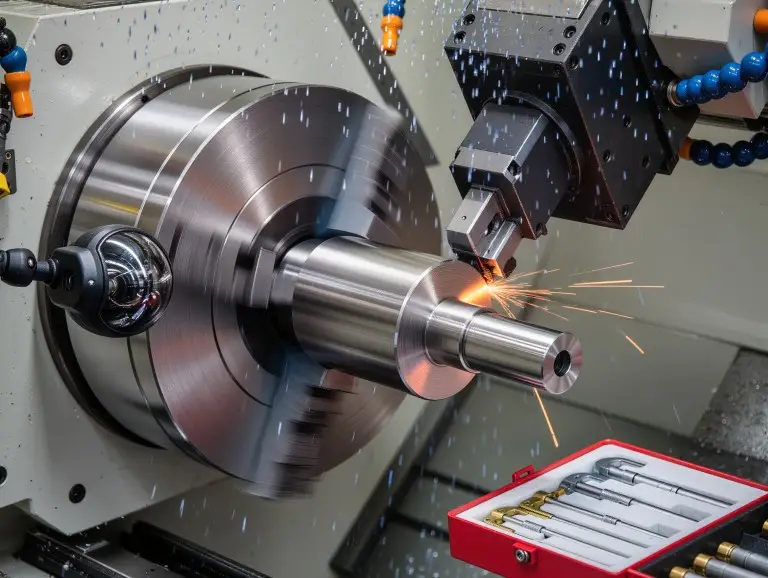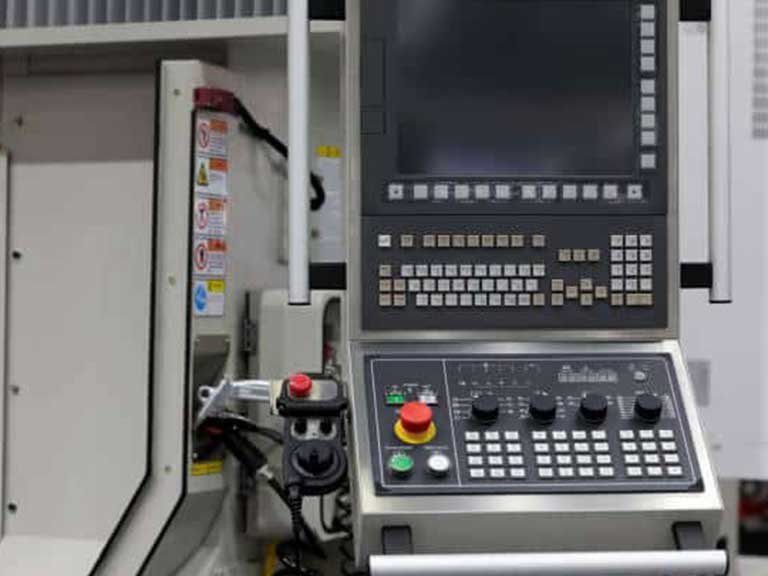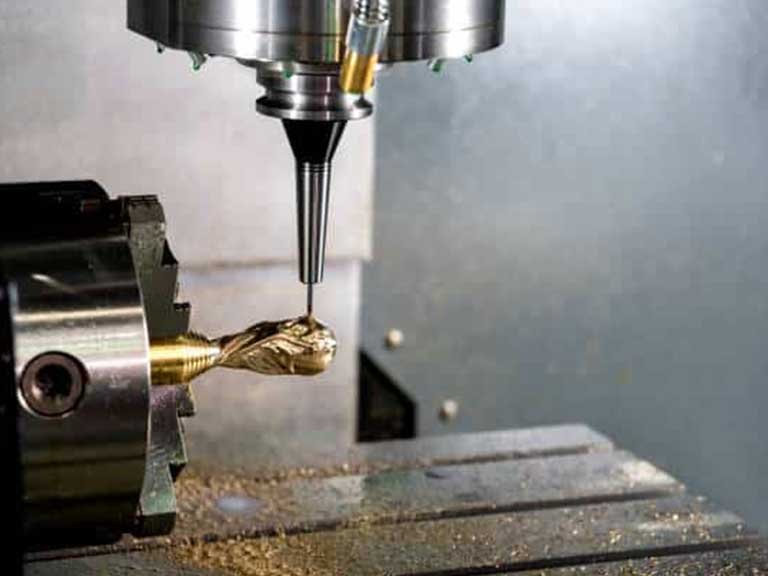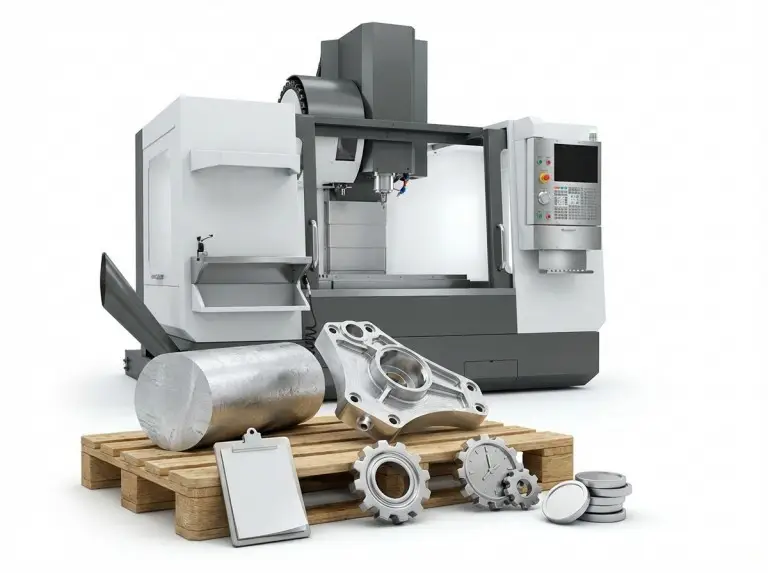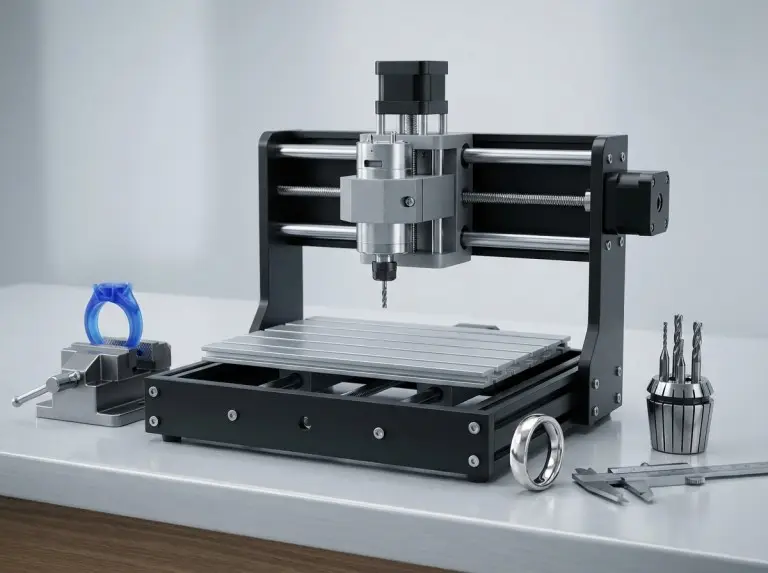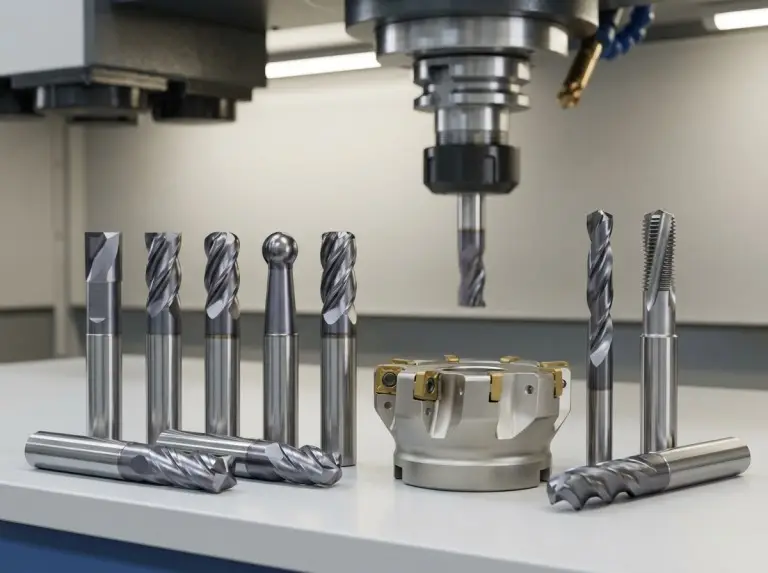CNC machining has revolutionized manufacturing, making it faster, more precise, and more efficient. CNC machines follow computer instructions to perform highly precise cutting, forming, and etching of materials. This manufacturing process enables the production of highly accurate customized products. However, despite these advantages, CNC machining still has significant limitations.
In this article, we will explore the vast field of CNC machining. This includes its main advantages and important drawbacks that manufacturers should be aware of. This will give you a clear understanding of how automation technology and CNC technology have transformed manufacturing processes.
What is a CNC Machining?
First, we should understand what CNC machining is. A CNC machine is a high-tech machine that precisely cuts, shapes, or engraves materials. It uses computer directions to make exact parts out of metal, wood, plastic, and other materials. Even though the first CNC cutting machine was made in 1952. However, it wasn’t until after 1967 that it really took off in the manufacturing world.
How does CNC machining work?
Computer-controlled cutting tools and exact movements are what make CNC machines work. They take digital plans and turn them into real parts. The plan is turned into G-code, a special language for machines that tells them how to work.
The control unit, the drive mechanisms, the cutting tools, and the workholding devices are some of the most important parts. They all work together to make very precise finished parts.
- CNC technology has come a long way since its early days. It is now an important part of modern industry.
- G-code programming gives you exact control over the cutting process.
Advantages of CNC Machining
CNC machining has many benefits, such as accuracy, stability, and the ability to work with a wide range of materials. We use these benefits to give you high-quality options for manufacturing.
- Precision and Accuracy: CNC machines are very precise and accurate, and they can keep margins as small as 0.004mm. Because of this, they are perfect for fields where exact specs are important.
- Consistency and Reproducibility: By controlling production activities through computers, CNC technology can eliminate human error. This ensures consistent quality across all production batches, regardless of size. This ability to repeat itself is especially helpful when making a lot of the same parts.
- Increased Efficiency and Production Speed: When compared to traditional ways of making things, automated tool change systems and continuous operation make production much more efficient, which speeds up the production process.
- Versatility Across Materials: Metals, plastics, and composites are just some of the things that CNC machines can work with. Because they can be used with a lot of different materials, they are a good choice for makers.
- Reduced Labor Costs: Although CNC machine tools require skilled operators for programming and setup. However, CNC machine tools can significantly reduce the number of workers required for production, especially in large-scale production.
- Design Flexibility: CNC machining can handle complex geometries and intricate designs. This allows for greater flexibility in manufacturing.
- Reduced Waste: Precise cutting and machining reduce material waste compared to traditional methods.
- Improved Safety: Automated operation reduces the risk of human error and potential injuries.
Significant Limitations of CNC Machining
There are many good things about CNC machining, but there are also some big problems that makers need to think about. These restrictions can affect how well CNC machining works generally, how much it costs, and how efficiently it can be used in different industrial tasks.
- High Initial Investment: The original cost of buying a CNC machine can be very high. Anywhere from tens of thousands to hundreds of thousands of dollars. This high cost up front can make it hard for small producers or people on a tight budget to adopt.
- Ongoing Maintenance Expenses: In addition to the original cost, CNC machines need to be maintained and fixed on a regular basis to make sure they work at their best. Some of these costs are the price of new parts, labor, and training for people who work in repair.
- Technical Expertise Needed: For CNC machining to work well, you need to know a lot about machine programming and operation. This can be hard for producers who don’t have the skills or tools to train their employees.
- Material Waste Concerns: CNC machining is a type of subtractive manufacturing. This means that to make a finished object, material is taken away. This can lose a lot of material, especially when compared to 3D printing and other forms of additive manufacturing.
- Material Limitations: Certain materials, such as ceramics and certain composite materials. Due to their hardness or brittleness, CNC machining can be challenging.
- Size and Shape Limitations: CNC machine tools have limitations in terms of the size and shape of parts that can be produced. Specific limitations depend on the specifications of the machine tool.
- Programming Complexity: Programming complex parts can be time-consuming and require skilled programmers. Especially for intricate designs.
Applications of CNC Machining Across Industries
Many different types of businesses use CNC machining, which shows how flexible and accurate it is. CNC technology has changed the way things are made, making it possible to make very precise, complicated parts.
Aerospace: CNC machining is used to make important parts in the aircraft industry. For example, like manifolds, bushings, and landing gear parts.
Automotive: Most of the prototypes and large-scale production of engine and transmission parts in the car business are also made with CNC technology.
Medical: CNC machining is very important in the medical field. Because it’s used to make surgery tools, implantable devices, and unique limbs.
Electronics: CNC machining is used in the electronics business to make heat sinks, cases, and precise parts for both consumer and industrial electronics.
CNC machining makes custom manufacturing solutions possible. It enables many companies to develop quickly, produce small batches, and manufacture unique parts. CNC machining is an important tool for modern industry because it can be used in so many ways.
Conclusion
CNC machining parts are a game-changer for businesses that need to make complicated parts. This is because it improves accuracy, regularity, and output speed in big ways. But it’s important to compare these benefits to the high starting cost, the need for upkeep, and the technical know-how that’s needed.
You can make an informed choice about whether to use CNC technology by looking at your unique manufacturing needs, output volumes, and budget limits. Working with an experienced partner like Wing Ho Machinery can help you get the most out of CNC machining. This can minimize related issues.
FAQ
What are the benefits of using CNC machining in manufacturing?
CNC machining offers several benefits. This includes improving efficiency, accuracy, and consistency. In addition, it can reduce labor costs and improve product quality.
What materials can be processed using CNC machines?
CNC machines can process a wide range of materials. These include metals such as aluminum and steel, as well as wood, plastics, and composite materials. Therefore, CNC machining is suitable for various industries.
How does CNC machining improve product accuracy?
CNC machining uses computer-aided design (CAD) software to create precise designs. These are then executed by CNC machine tools, thereby improving product accuracy. This minimizes human error.
What is the role of programming in CNC machining?
Programming plays a crucial role in CNC machining. This is because it involves creating instructions that guide the machine tool to manufacture parts and products according to the required specifications.
Can CNC machining be used for mass production?
Yes, CNC machining is suitable for mass production. This is because it can run continuously and maintain consistency. Therefore, this process is ideal for mass production.

